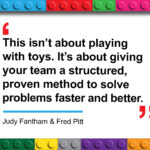In our Value Builder series we explore the eight key factors potential buyers review when looking to acquire a business – maybe yours!
How To Scale Your Business For Future Growth
“A startup is a temporary organization designed to search for a repeatable and scalable business model.”
– Steve Blank, Entrepreneur, Mentor, and Author
Scalability is the ability for your company to grow. When a business is scalable it can adapt to a larger workload without compromising performance or a loss in revenue. Could your startup business potentially grow to a multi- million-dollar company? If it’s scalable, the answer is yes!
John Warrillow defines a scalable business as “something you can run without you personally doing all the work.” There are many forms of scalability worth considering for your business. The following are some approaches to growth along with examples of companies that successfully adopted a scalable business model to generate increased profits:
Geographic Scalability
Will your business concept work in another area? College friends Sinclair and Julian started creating the sort of food they craved that was nearly impossible to find elsewhere. Despite their lack of business experience, they opened their first shop in London in 1986. They made proper sandwiches without using the obscure chemicals, additives and preservatives commonly found in most of the ‘prepackaged’ and fast food that is available. After noticing an increased demand for their products, they expanded geographically and today there are more than 295 Pret A Manger® shops worldwide.
Horizontal Scalability
Do you have a brand that resonates with a specific audience? If so, you may have the raw material to scale up your business by selling more to your existing customers. For example, Richard Branson’s Virgin brand stands for giving customers an alternative through a certain psychographic in which he has scaled up his concept to offer everything from train travel, mobile phones and credit cards.
Vertical Scalability
If your existing infrastructure (staff, machinery, office space) could handle more customers without adding much to your variable costs, then you have the ability to scale vertically. For instance, a 200-room hotel that averages just 75 guests per night has the potential to scale up more than two times before its owners would have to make any significant infrastructure investments.
Cultural Scalability
If your idea works in one culture, could it achieve the same success in other cultures? In 1889, Charlemagne Mayot founded Paul Bakery in the city of Croix, France. Given the French obsession with fresh bread (the French measure freshness in minutes, not days), it’s not surprising that Paul grew steadily over the last century. Today his business is as ubiquitous in France as Starbucks is in Seattle.
What’s more interesting is that the cultural appeal of fresh bread has scaled beyond France’s borders, and now Paul offers fresh French bread in 19 other countries.
Rethinking your business model with a focus on these different forms of scalability will help support and augment your existing company with new revenue streams. A highly successful business can eventually sustain itself, regardless of who is in charge – you just have to determine how to get there.
Upon completing the complimentary Value Builder questionnaire available from The Osborne Group, you will receive a Value Builder Assessment Score out of 100. The questionnaire is part of a system developed by internationally recognized small business expert John Warrillow. Your answers will help determine what drives up, or undermines, your company’s value. The questionnaire takes just 15 minutes to complete online. The questionnaire generates a detailed report that an Osborne Group Certified Value Builder consultant will review with you during a complementary two-hour meeting.
In future blogs, we’ll examine other Value Builder factors and their impact on your company’s worth. Follow us here for the series:
http://localhost/osborne/category/osborne-insights-blog/
To find out how your company is performing, click here to take the Value Builder questionnaire: http://www.thevaluebuildersystem.com/osborne-group






